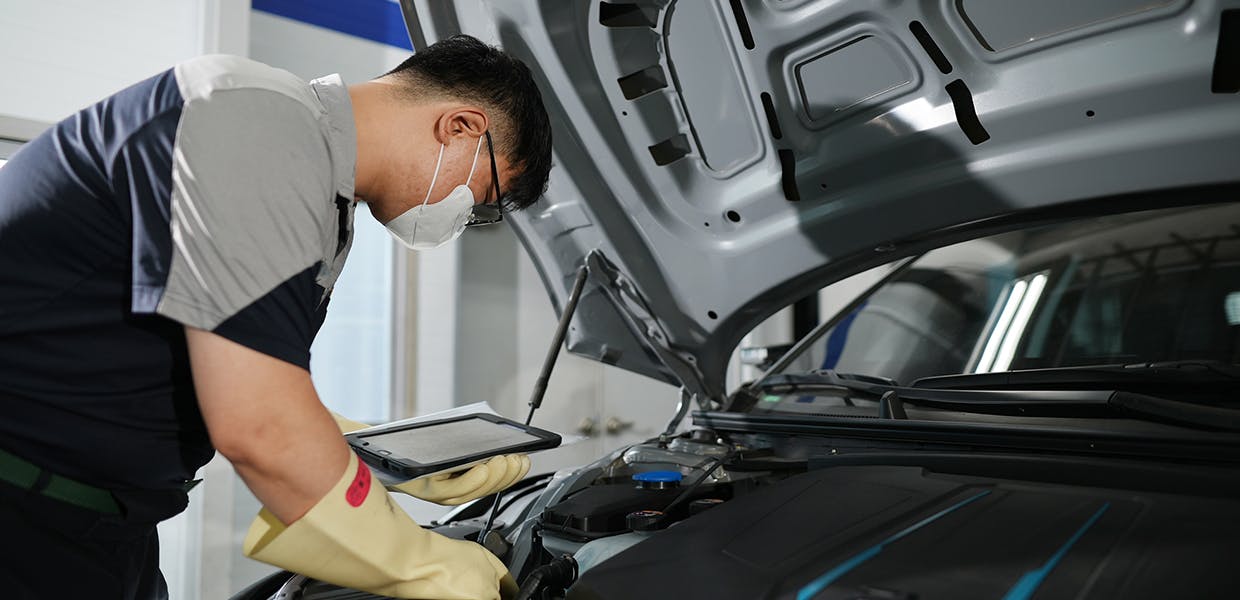
The Ins and Outs of Electric Vehicle Maintenance
As electric vehicles (EVs) continue to gain popularity due to their environmental benefits and advanced technology, many potential owners have questions about maintaining these vehicles. While EVs have fewer moving parts compared to traditional internal combustion engine (ICE) vehicles, they still require regular maintenance to ensure optimal performance and longevity. This blog post will cover the ins and outs of electric vehicle maintenance, highlighting the unique aspects of EV upkeep, common maintenance tasks, and tips for keeping your EV in top condition.
The Basics of Electric Vehicle Maintenance
Electric vehicles differ from ICE vehicles in several fundamental ways, which directly impact their maintenance needs. Some key components and systems in EVs include:
- Electric Motor: Unlike ICE vehicles, EVs use an electric motor to drive the wheels. This motor requires less maintenance than a traditional engine.
- Battery Pack: The battery pack is the heart of an EV, providing the power needed to drive the vehicle. Proper care and maintenance of the battery are crucial for the vehicle's performance and longevity.
- Regenerative Braking System: EVs use regenerative braking to recover energy during braking, reducing wear on the brake pads.
- Electronic Control Systems: Advanced electronic control systems manage the powertrain, battery, and other vehicle functions.
Common Maintenance Tasks for Electric Vehicles
While EVs require less maintenance than ICE vehicles, there are still essential tasks that need to be performed regularly to ensure the vehicle remains in good working condition. Here are some common maintenance tasks for EVs:
Battery Maintenance
- Battery Health Monitoring: Regularly check the battery's health using the vehicle's onboard diagnostics or a dedicated battery management system. This helps identify any issues early and ensures the battery is operating efficiently.
- Proper Charging Practices: Follow the manufacturer's recommendations for charging to maximize battery life. Avoid frequent deep discharges and use Level 2 chargers when possible for regular charging.
- Thermal Management: Ensure the battery's thermal management system is functioning correctly to prevent overheating or overcooling, which can affect battery performance and longevity.
Brake System Maintenance
- Brake Pad Inspection: While regenerative braking reduces wear on brake pads, they still need to be inspected regularly for wear and replaced as needed.
- Brake Fluid Replacement: Check and replace brake fluid according to the manufacturer's recommendations to maintain optimal braking performance.
Tire Maintenance
- Tire Rotation: Regularly rotate the tires to ensure even wear and extend their lifespan.
- Tire Pressure: Maintain proper tire pressure to ensure optimal handling, range, and tire longevity. Check the tire pressure regularly and adjust as needed.
Cooling System Maintenance
- Coolant Levels: Check and maintain the coolant levels for the battery and electric motor cooling systems. Low coolant levels can lead to overheating and reduced performance.
- Coolant Replacement: Replace the coolant according to the manufacturer's schedule to ensure the cooling systems function correctly.
Software Updates
- Firmware Updates: Regularly update the vehicle's software and firmware to ensure optimal performance and access to the latest features and improvements. Many EV manufacturers provide over-the-air updates, making this process convenient.
Unique Aspects of EV Maintenance
Electric vehicles have several unique aspects that differentiate their maintenance needs from those of ICE vehicles. Understanding these differences can help EV owners better care for their vehicles.
Fewer Moving Parts
EVs have significantly fewer moving parts compared to ICE vehicles. This reduces the need for maintenance on components like the engine, transmission, and exhaust system. As a result, EVs typically have lower maintenance costs over their lifespan.
Regenerative Braking
Regenerative braking reduces wear on brake pads by using the electric motor to slow the vehicle and recover energy. This means that brake pads in EVs tend to last longer than those in ICE vehicles, reducing the frequency of brake maintenance.
High-Voltage Systems
EVs use high-voltage systems to power the electric motor and other components. Maintenance and repairs on these systems should only be performed by trained professionals to ensure safety and prevent damage to the vehicle.
Tips for Maintaining Your Electric Vehicle
To keep your EV in top condition, follow these tips:
- Follow the Manufacturer's Maintenance Schedule: Adhere to the maintenance schedule provided by the vehicle manufacturer. This ensures that all necessary maintenance tasks are performed at the recommended intervals.
- Monitor Battery Health: Regularly check the battery's health and follow proper charging practices to maximize its lifespan and performance.
- Keep Software Updated: Ensure that your vehicle's software is up-to-date to benefit from the latest improvements and features.
- Use Qualified Service Centers: For maintenance and repairs, use service centers that are certified to work on electric vehicles. This ensures that the work is performed correctly and safely.
- Maintain Proper Tire Pressure: Regularly check and maintain the correct tire pressure to ensure optimal handling, range, and tire longevity.
Electric vehicle maintenance is generally simpler and less frequent than maintenance for ICE vehicles, thanks to the reduced number of moving parts and the advanced technologies used in EVs. By understanding the unique aspects of EV maintenance and following the manufacturer's recommendations, EV owners can ensure their vehicles remain in excellent condition, providing reliable and efficient transportation for years to come.
Whether you're a current EV owner or considering making the switch to electric, knowing the ins and outs of EV maintenance will help you keep your vehicle running smoothly and maximize the benefits of this environmentally friendly technology.








